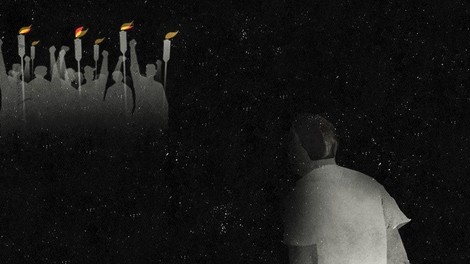Your podcast discovery platform
Curious minds select the most fascinating podcasts from around the world. Discover hand-piqd audio recommendations on your favorite topics.

piqer for: Global finds Technology and society Globalization and politics
Elvia Wilk is a writer and editor living in New York and Berlin, covering art, architecture, urbanism, and technology. She contributes to publications like Frieze, Artforum, e-flux, die Zeit, the Architectural Review, and Metropolis. She's currently a contributing editor at e-flux Journal and Rhizome.
Where Do White Supremacists Come From?
Where do white supremacists come from?
New Jersey, for one.
The identity of a “white-nationalist shock jock named Mike Enoch” with a far media reach—including a podcast with tens of thousands of listeners—was recently revealed. The discovery of who he really was opened the floodgates for myriad questions about how his nationalist and racist views developed. Not least because he grew up in a liberal family and he was married to a Jewish woman.
In this New Yorker essay, Andrew Marantz investigated Enoch’s personal and family history for clues, talking to the subject and his family.
Mike Enoch Peinovich comes from a liberal-leaning family in New Jersey and his parents are strongly opposed to their son’s values, not to mention bewildered at what went wrong. They struggle not to blame themselves and not to hunt for “turning points” or psychological traumas that could have been avoided—his parents’ divorce when he was young, for instance.
Says his stepmom:
“But lots of kids have parents who get divorced when they’re young. Lots of white kids have difficult personalities. They don’t all become Nazis.”
The picture that emerges is that of a very vulnerable young person who became defensive and contrarian over many years of participation in forums online. After moving to Brooklyn, becoming a programmer, and marrying, he cycled through political views ranging from Marxism to libertarianism to “paleoconservatism”, searching for (easy) answers to seemingly incommensurable problems in the world.
Why settle on racism? According to Marantz:
“The idea of racial hierarchy seemed to hold enormous explanatory power.”
Searching for personal biographical information to explain political extremism will always fall short: there are many answers, and there are no answers. The earnest attempt to try is a case in point.
